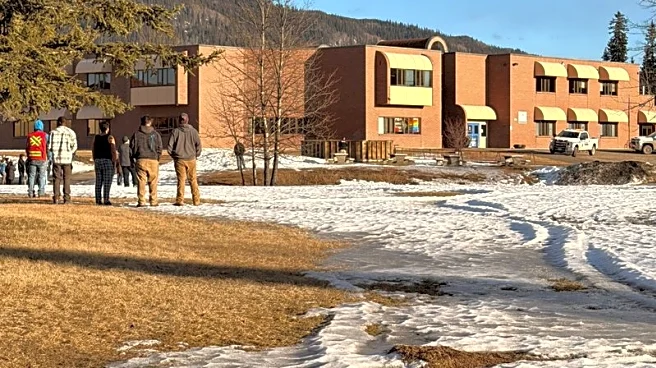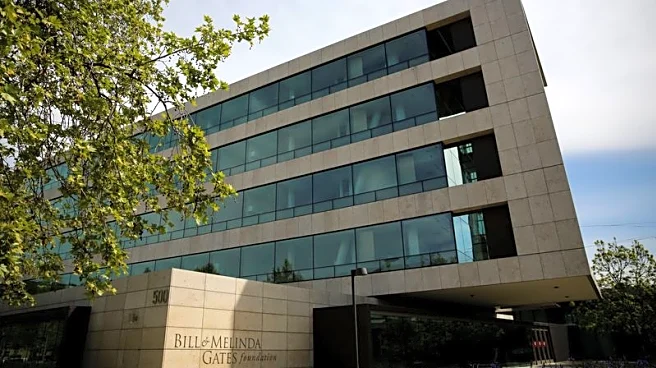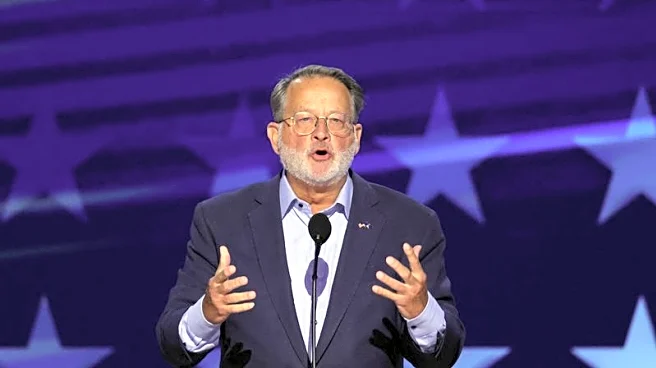What's Happening?
Banco do Brasil, led by CEO Tarciana Medeiros, is actively participating in efforts to preserve the Amazon rainforest as Belém, Brazil, prepares to host COP30. The bank is focusing on sustainable economic alternatives, such as bioeconomy hubs, to support local communities and reduce deforestation. Medeiros has signed agreements to finance bioeconomy and innovation projects, aiming to conserve natural resources and diversify income for smallholder farmers. Banco do Brasil is recognized for its sustainability efforts, including solar-powered operations and a significant ESG credit portfolio.
Why It's Important?
The initiatives led by Banco do Brasil are crucial for balancing economic development with environmental protection in the Amazon region. By promoting sustainable practices, the bank is helping to preserve a vital global biome while supporting the livelihoods of millions living in the Amazon Basin. These efforts contribute to global climate goals and set a precedent for other financial institutions to integrate sustainability into their operations. The bank's commitment to renewable energy and carbon market participation further underscores its role in advancing environmental stewardship.
What's Next?
Banco do Brasil plans to expand its bioeconomy model to other biomes and aims to conserve or reforest 5 million acres by 2027. The bank is developing methodologies to operate in the carbon market, leveraging technology to generate carbon credits. As COP30 approaches, discussions on climate action and preservation strategies will intensify, potentially influencing policy decisions and attracting further investment in sustainable projects.
Beyond the Headlines
The bank's efforts highlight the intersection of finance and environmental responsibility, showcasing how financial institutions can drive positive change. The focus on bioeconomy and community engagement reflects a broader trend towards inclusive growth and sustainable development, which could reshape industry standards and influence global environmental policies.









